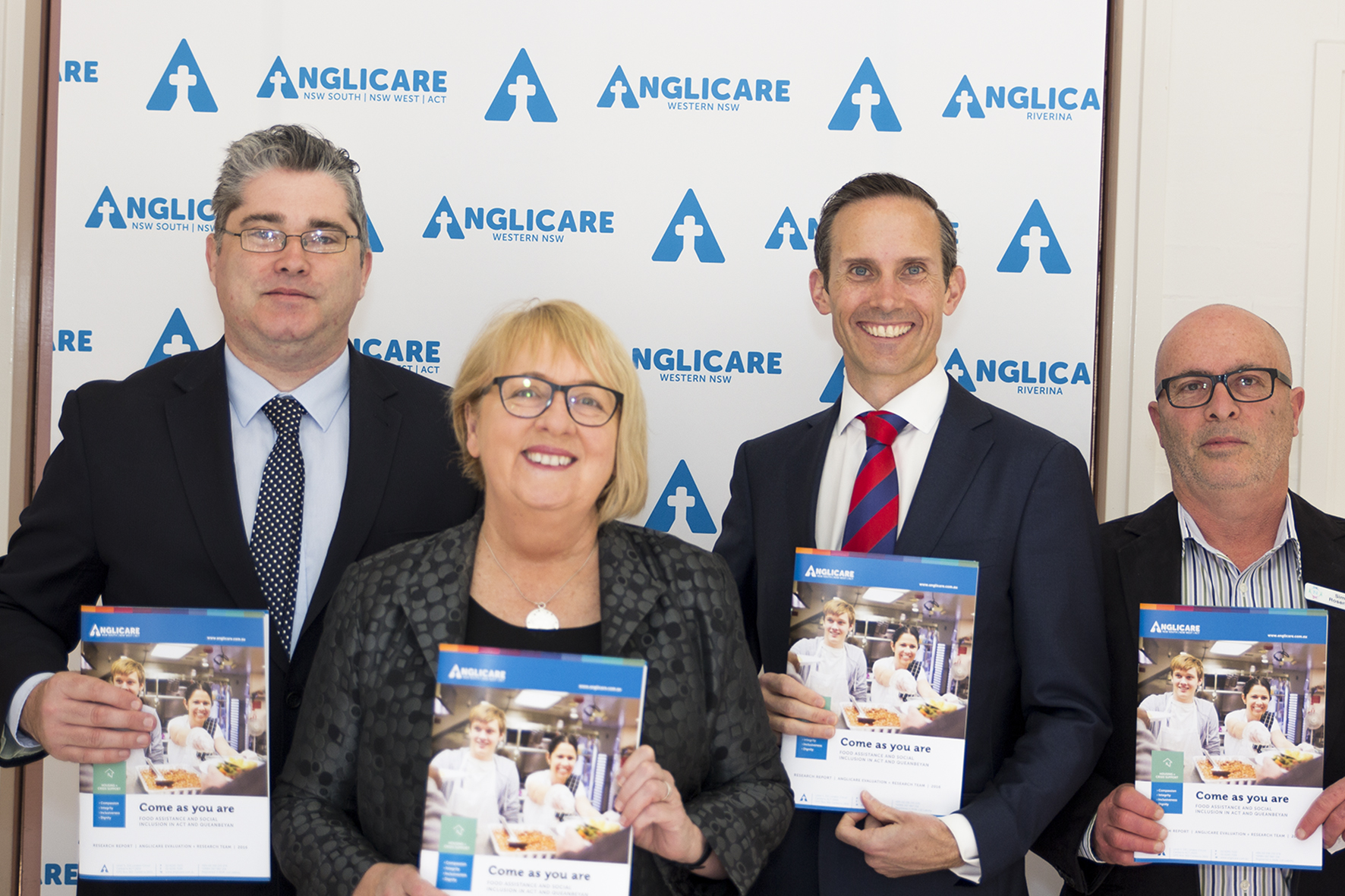18 October 2016.
In response to new research into the link between food programs and improved social inclusion, Anglicare is calling on the re-elected ACT Government to do more to address the needs of social housing tenants affected by relocations from the inner city.
“A growing number of vulnerable people right here in our own city are excluded from the kinds of social participation that most of us take for granted with food programs playing a critical role in addressing loneliness and associated mental health issues,” says Anglicare CEO, Jeremy Halcrow. “We are very concerned about serious negative impacts from the loss of social capital if public housing tenants are moved to parts of Canberra where they can no longer access food programs.”
The report analysed data from over 1000 people who accessed help at four emergency relief, food bank and meal programs in Canberra and Queanbeyan, with the analysis supplemented with indepth interviews. Respondents indicated that the social support offered at these centres was just as important as food and other practical support. Link to report.
“Making sure people have the basics like food, clothing and accommodation is important,” Mr Halcrow said, “But the support provided by Anglicare is not simply about filling empty bellies. The research paper demonstrates the importance of food services in addressing social isolation and the associated issues of loneliness and mental health which can hinder people from participating in society. It is therefore so essential that we do not create new barriers to these participation pathways by housing them areas where they cannot access food programs given the lack of affordable and disability-friendly transport options in Canberra.”
Corey is a 25 year old Canberra local who accessed emergency food relief at Club 12/25 after struggling to find employment and appropriate housing. For Corey, the friendship and additional support offered by staff has continued to impact his life.
“I lost my dad when I was 21 and everything went downhill,” says Corey. “My life now is so much better now; so much happier; so much healthier. I’ve got a job. I’ve got more friends. I’m not alone anymore.”
The charity is also calling for greater government investment in emergency relief services recognising they are often an entry point for vulnerable people to access post-crisis services that can help break the cycle of poverty.
The research also shows that spring is a peak demand time for Anglicare’s emergency food and financial relief services.
“A key reason that demand is so high at this time of year is that people are receiving large winter heating bills,” Mr Halcrow said. “This year we have exhausted our winter pantry donations more quickly than usual. The reason might be that this year it has been wet and cold for much longer than usual and this has resulted in large utility bills for many households putting them into financial stress.”
Picture: Anglicare CEO, Jeremy Halcrow, Jenny Macklin MP, Andrew Leigh MP, Northside Community Service CEO, Simon Rosenbery
